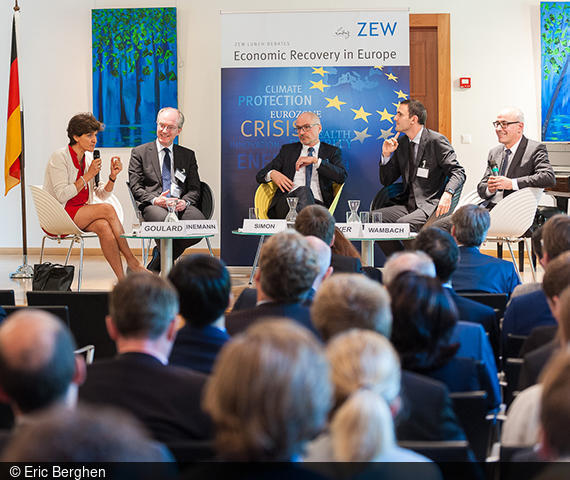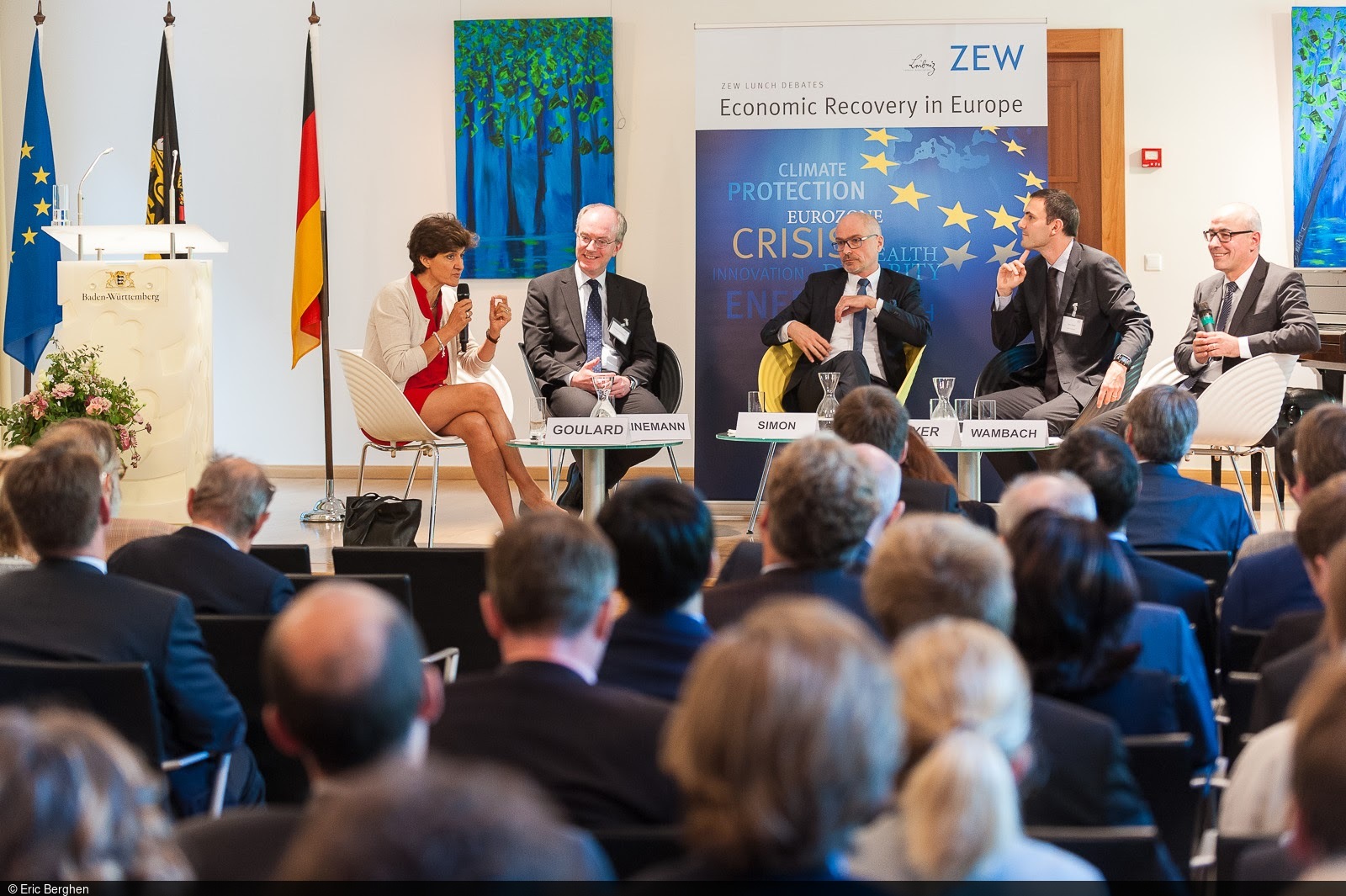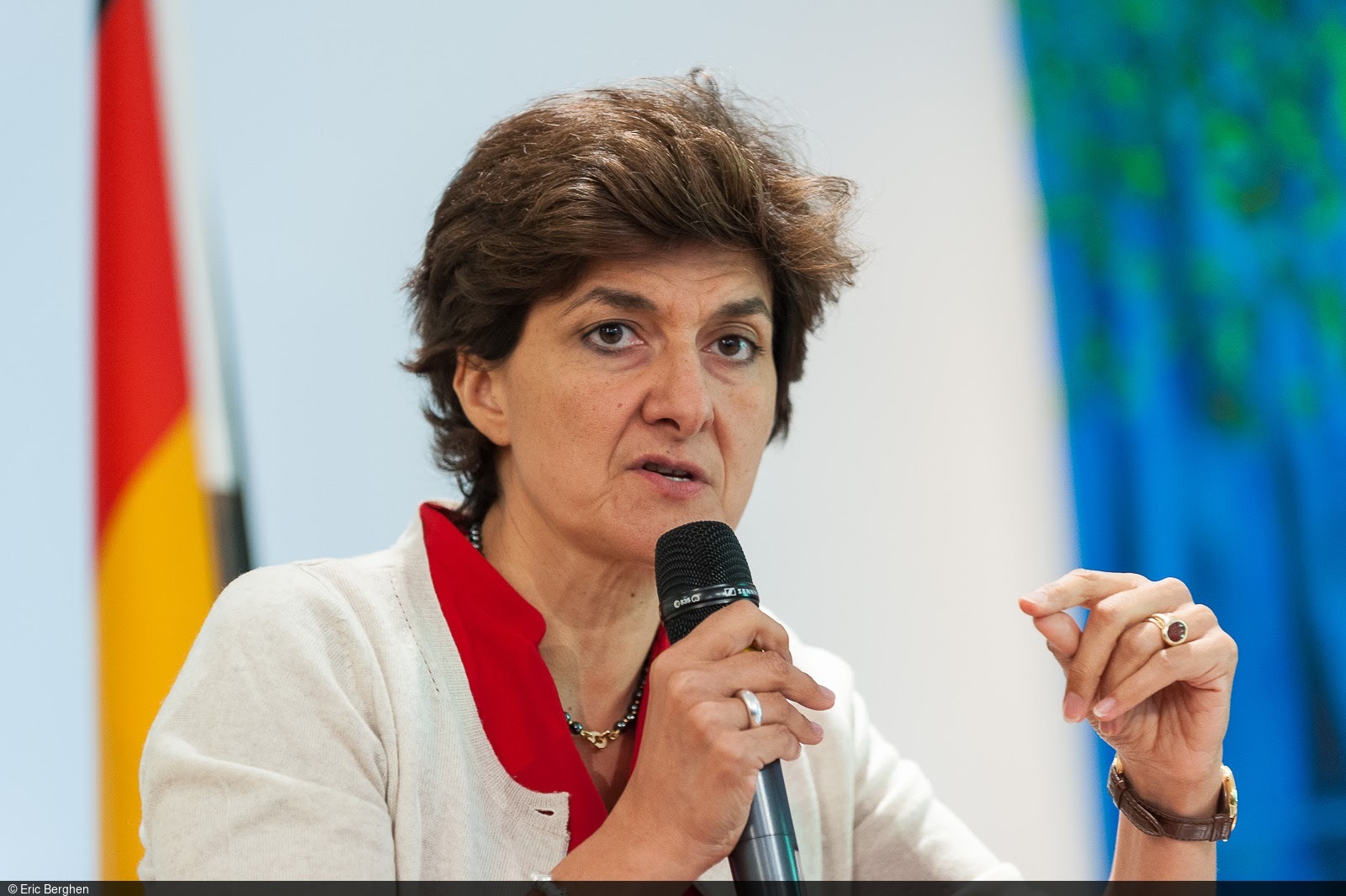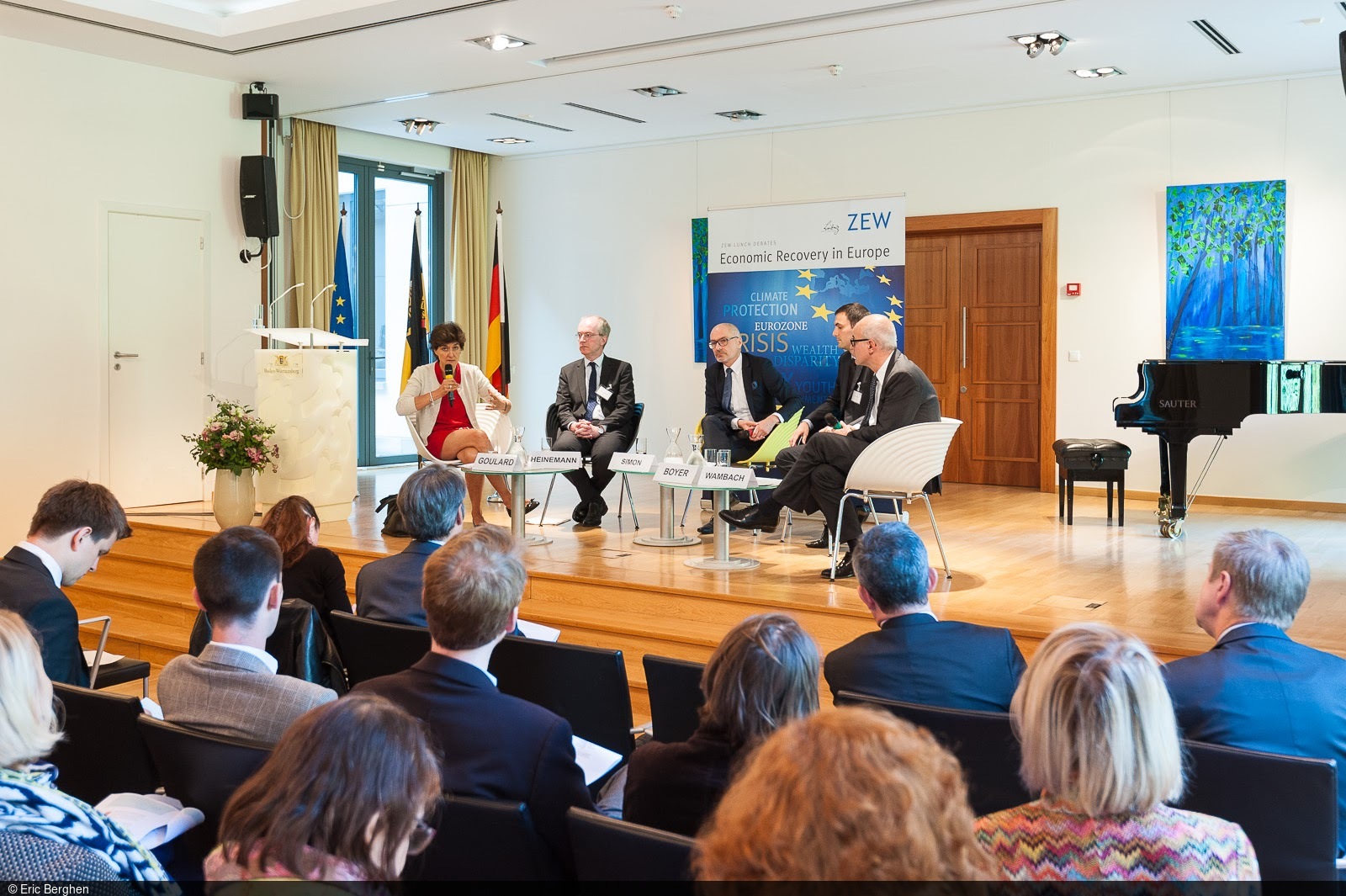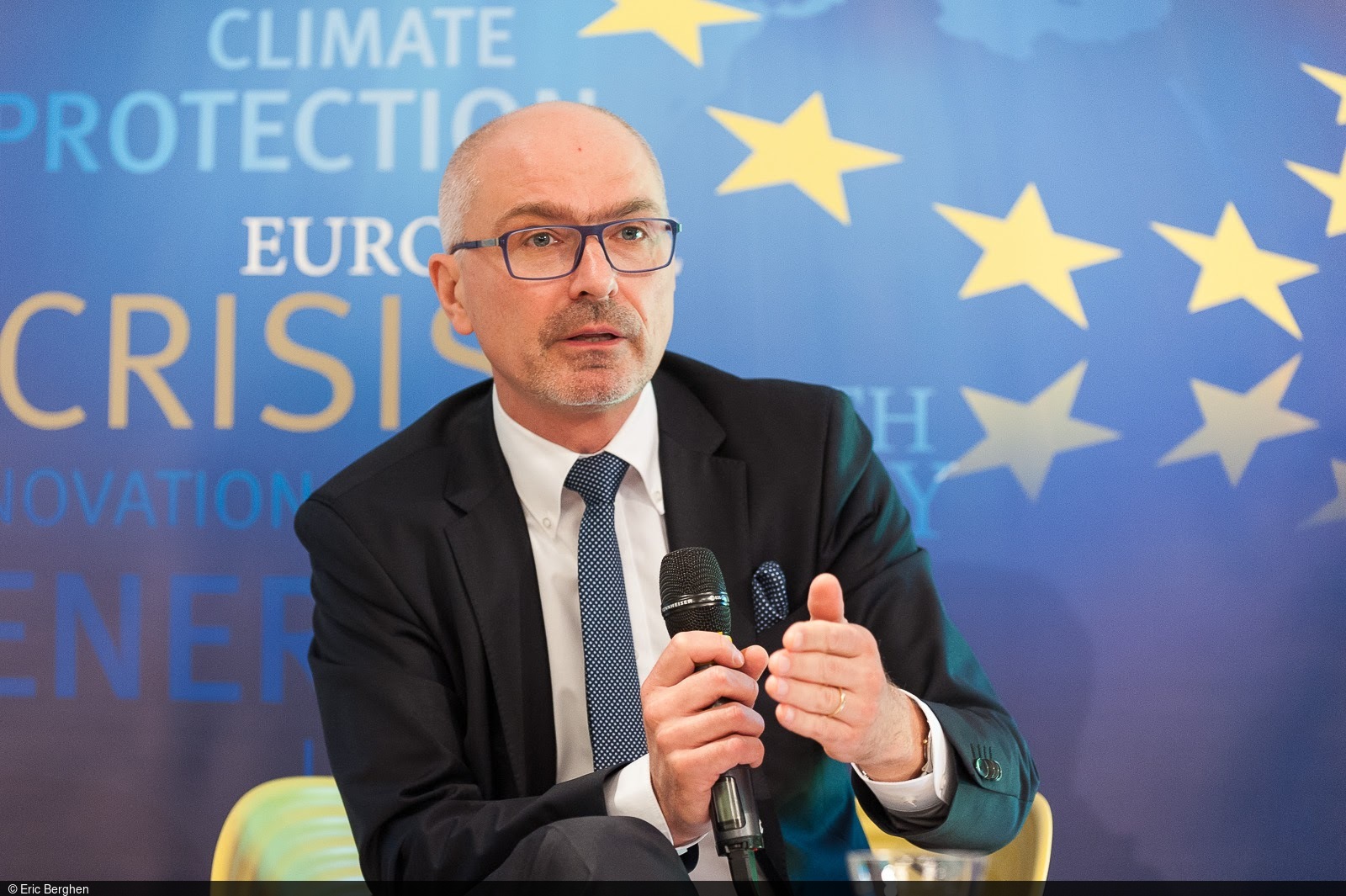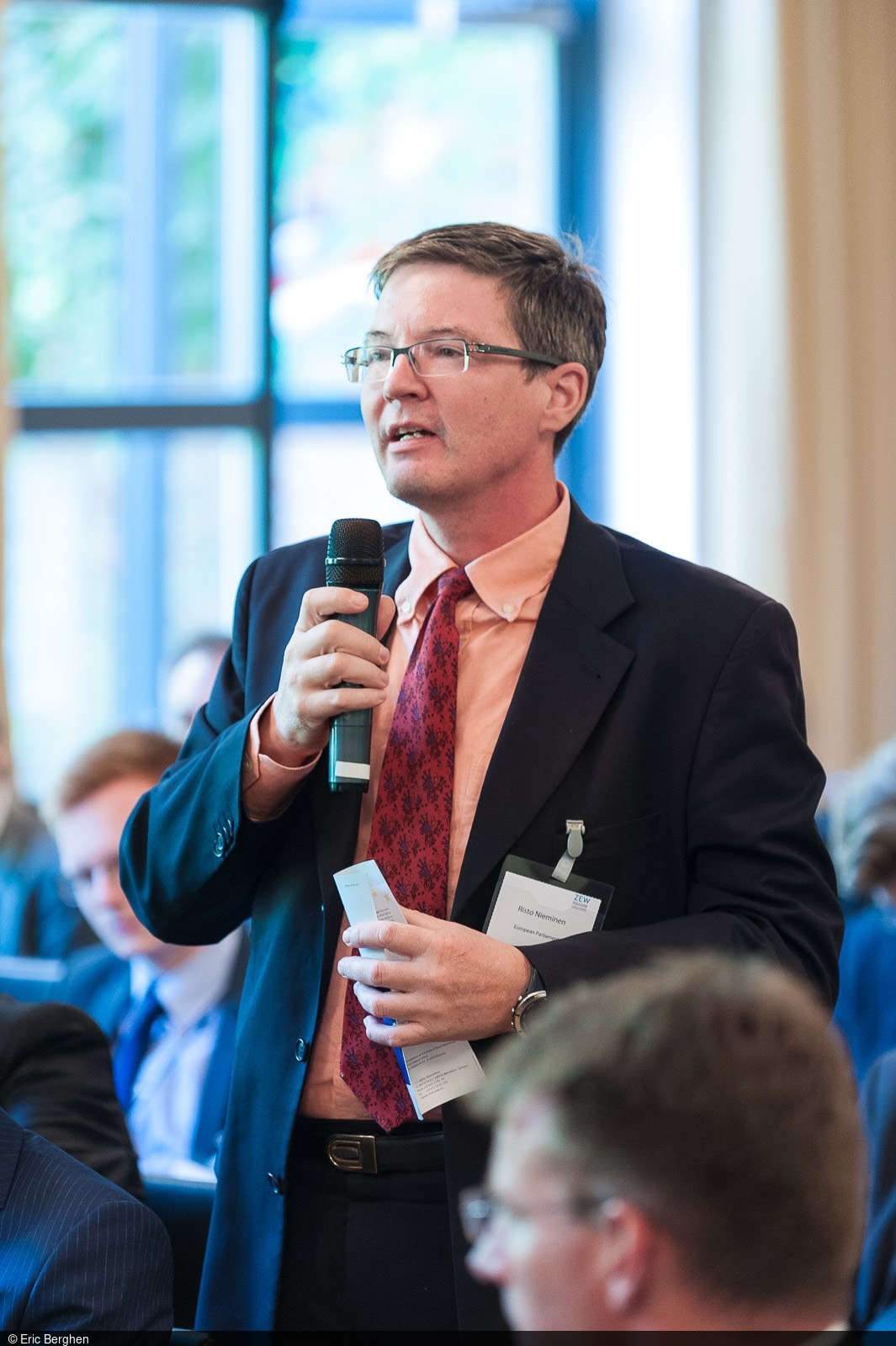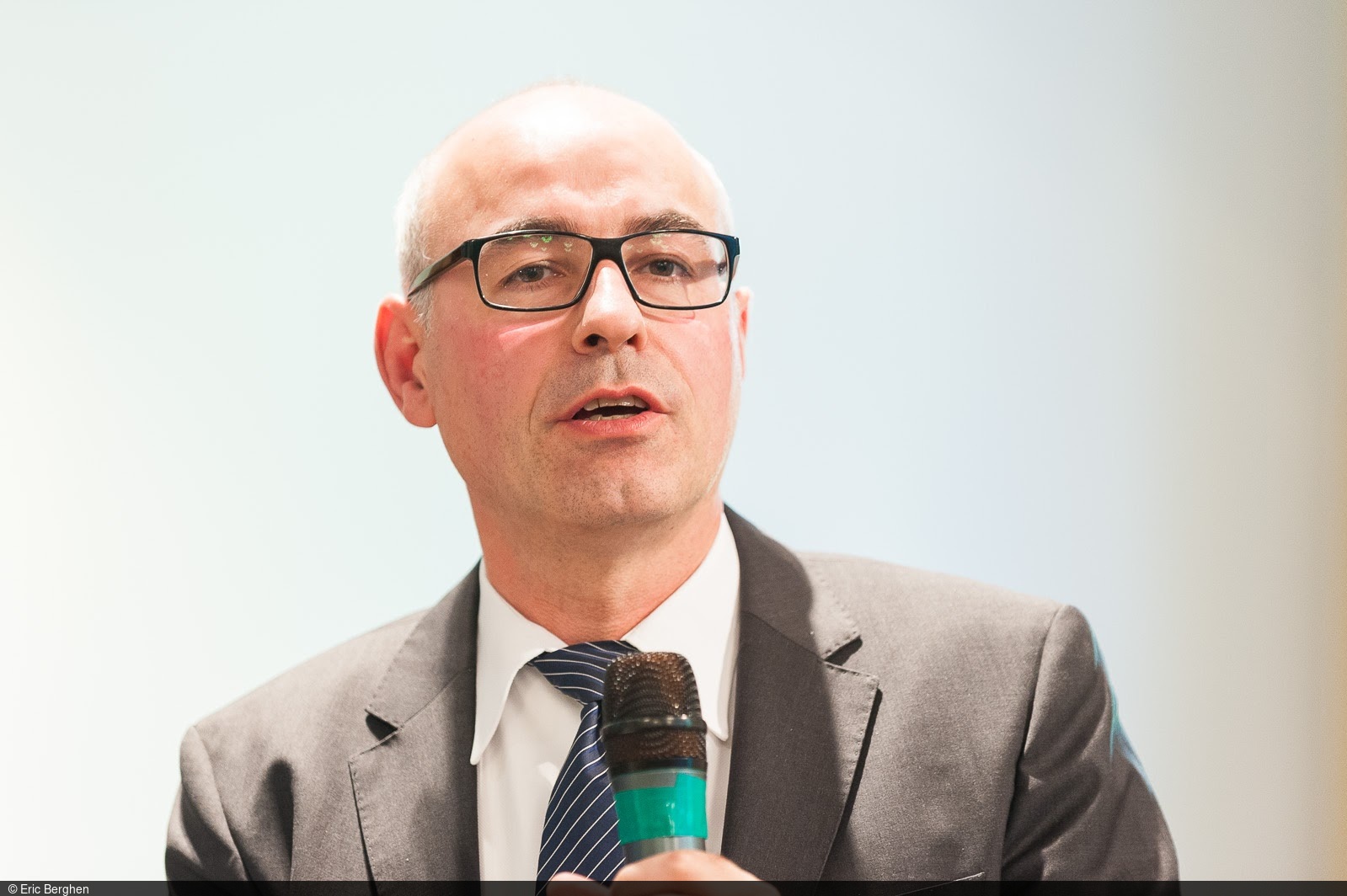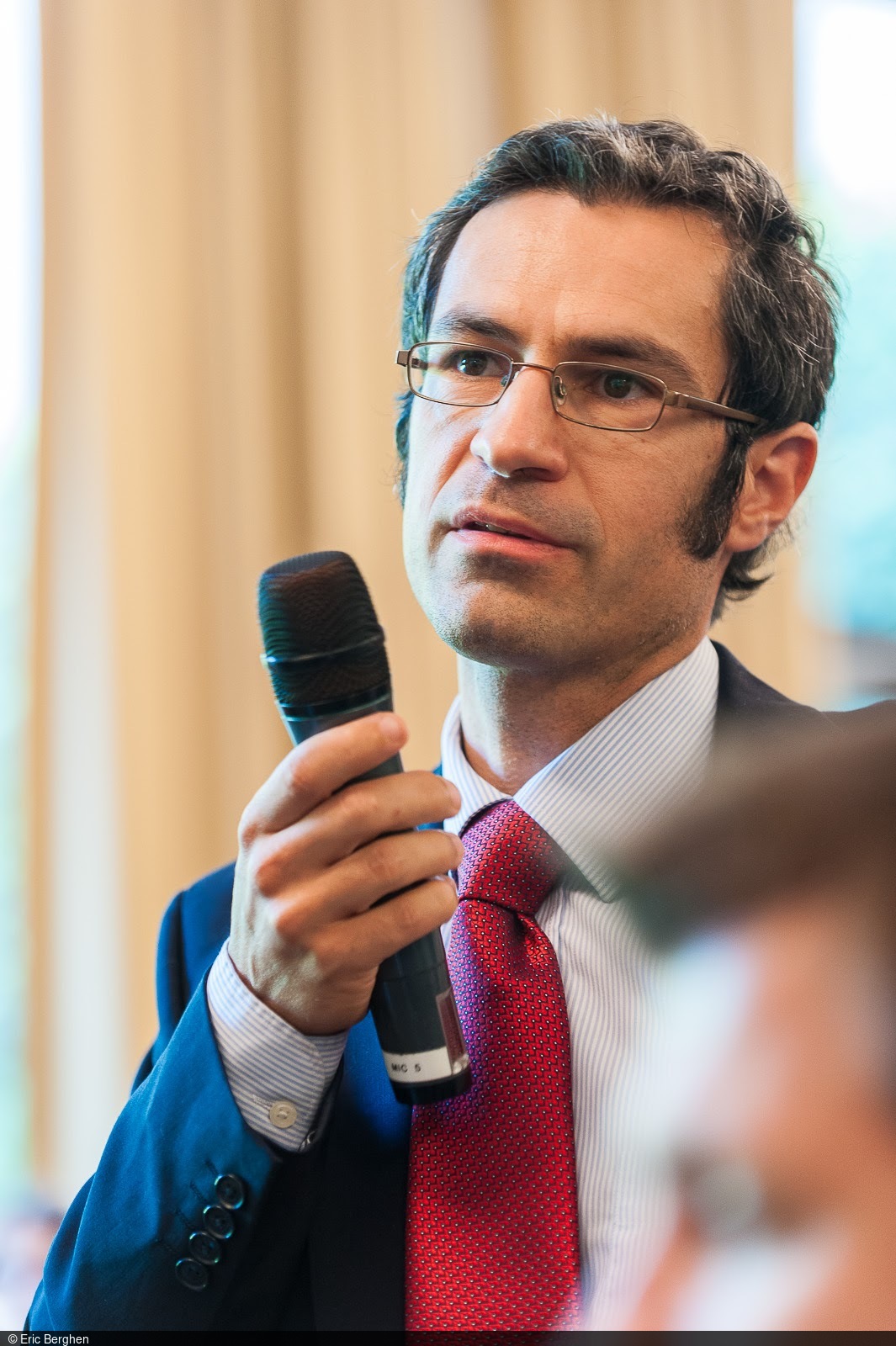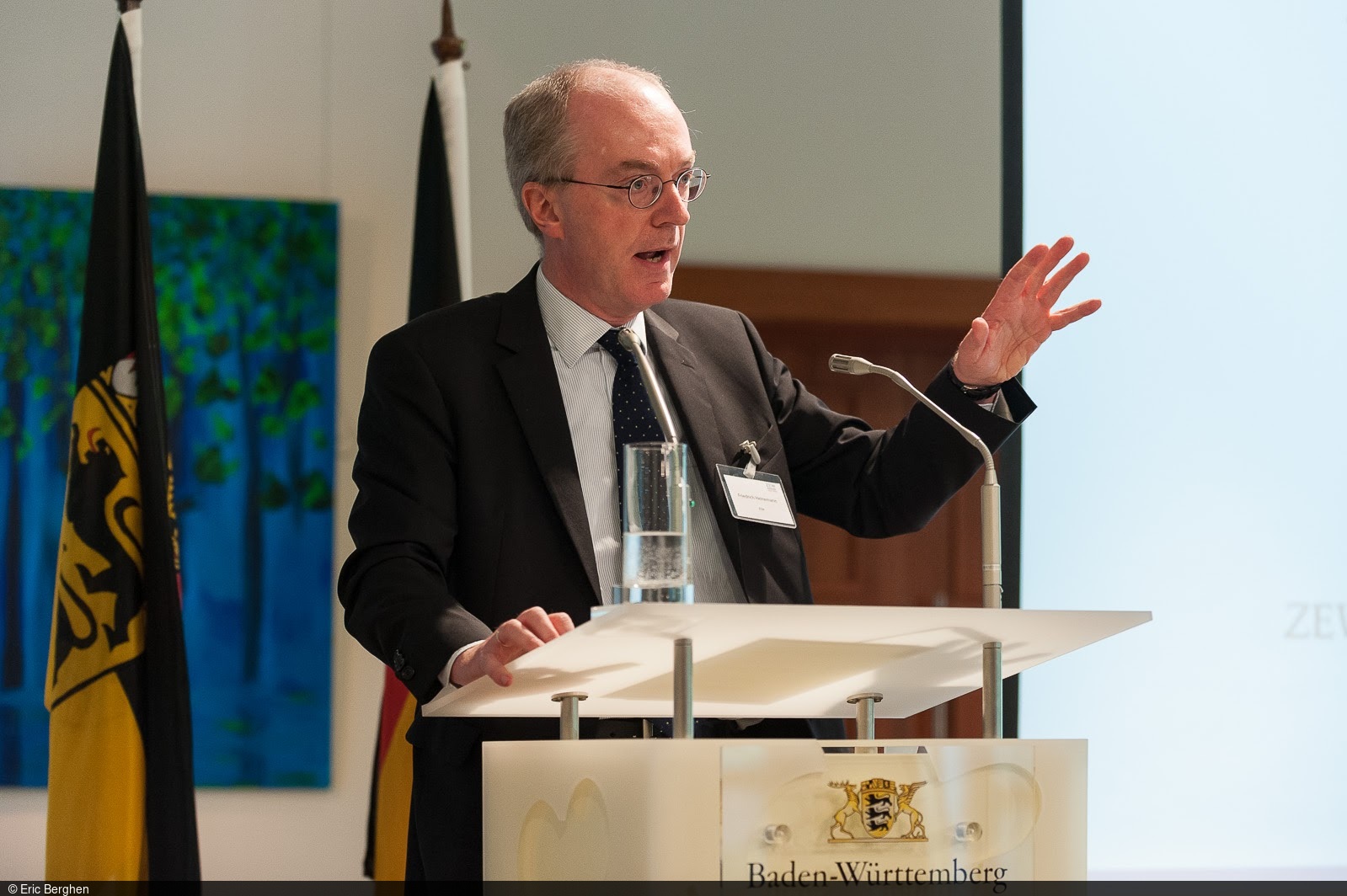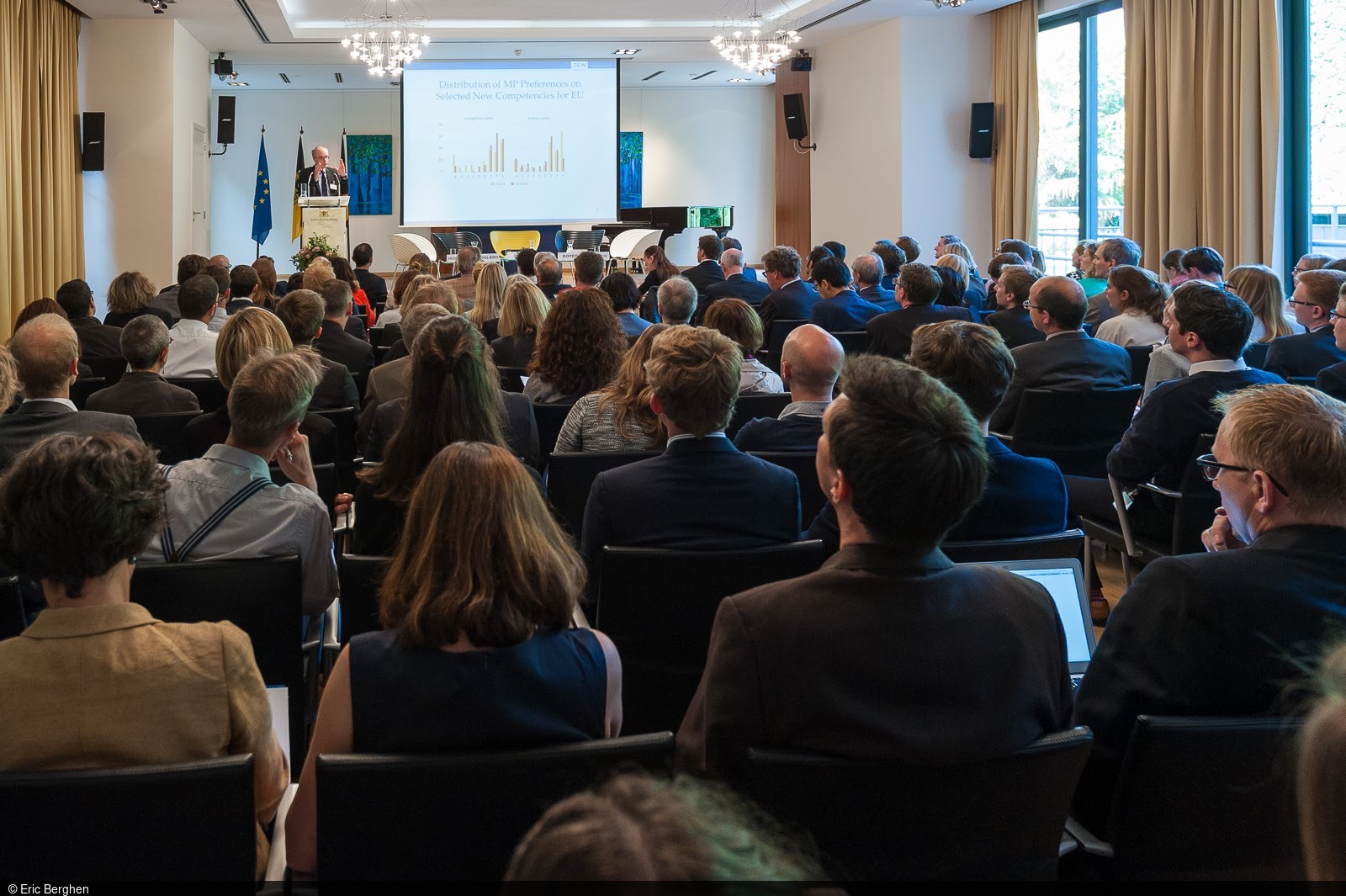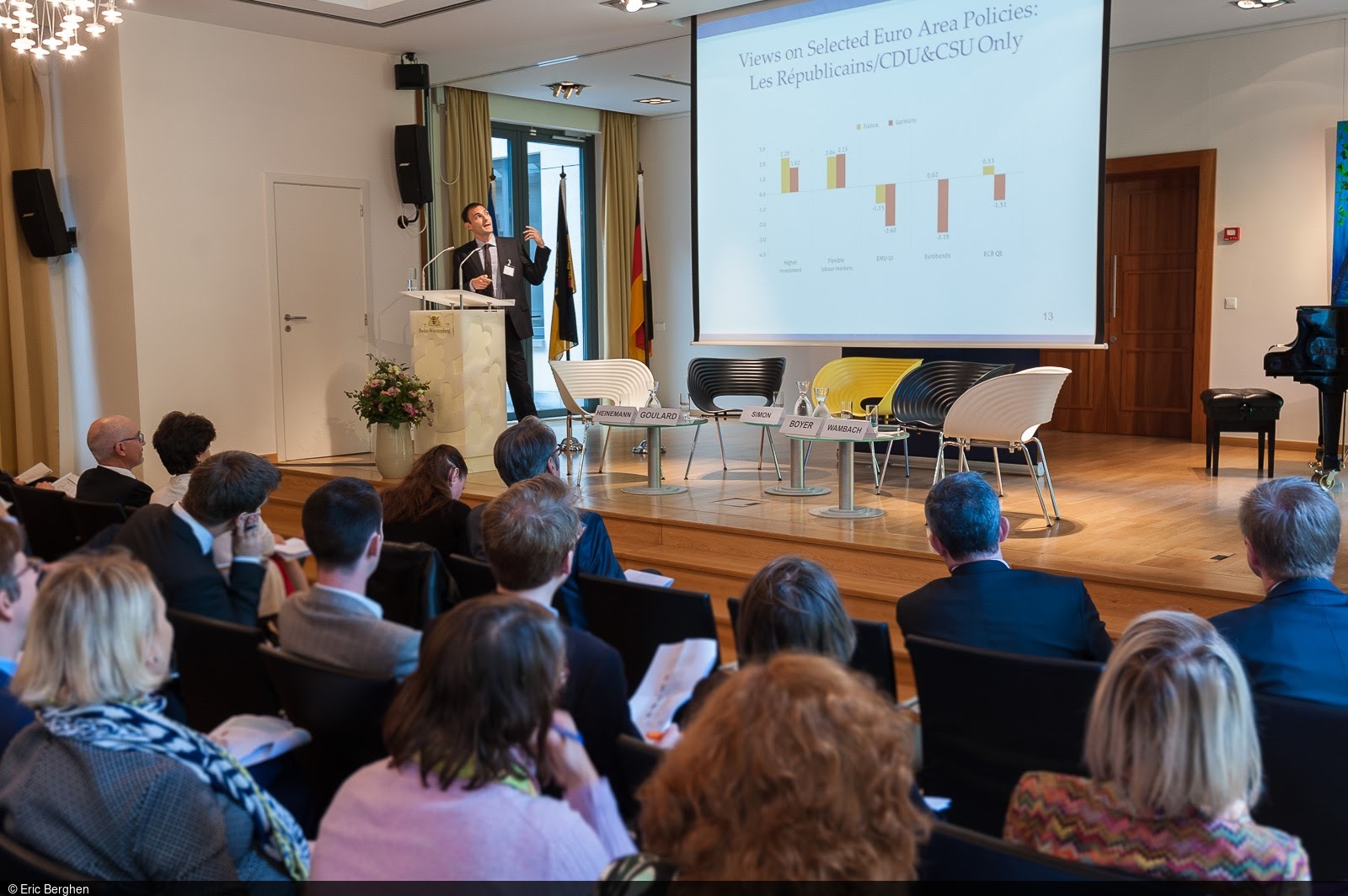Brexit Reveals Tensions in Europe
ZEW Lunch Debate in BrusselsThe decision of the British voters to leave the European Union has sparked concerns across the continent. How should and can the process of European integration continue? And what will Germany and France, the two leading economies in Europe besides the UK, do? These are key issues regarding the future of the EU addressed at the ZEW Lunch Debate on September 28, 2016 at the Representation of the State of Baden-Württemberg in Brussels.
In his opening speech "Brexit: A Fractured Europe?", Professor Achim Wambach, President of the Centre for European Economic Research (ZEW), pointed out that decision-making competencies regarding important EU questions need to be shifted back to the national parliaments. In order to remain capable of effective policy action, EU Member States must shoulder their responsibilities – particularly in view of the Brexit vote, which revealed significant tensions within the European Union.
During the debate, Professor Friedrich Heinemann, head of the ZEW Research Department "Corporate Taxation and Public Finance", and Professor Pierre Boyer, junior professor for theoretical financial economics at the École Polytechnique, Paris, explained where these tensions are rooted. In collaboration with the University of Mannheim, ZEW and the École Polytechnique conducted a survey among French and German members of parliament (MPs) in order to explore possible approaches for tackling economic policy issues as well as the allocation of EU competencies in a post-Brexit EU. "We know a lot about the voters' opinions on EU policy. What we don't know is what the politicians think on these matters," says Friedrich Heinemann, explaining the survey approach. All in all, the survey revealed that French MPs are in general more open towards shifting competencies to Brussels, while their German counterparts are more reluctant to granting competencies to the EU.
"Nationalism gets us nowhere"
At the panel discussion, Friedrich Heinemann and Pierre Boyer were joined by Sylvie Goulard, member of the European Parliament (MEP) in the Group of the Alliance of Liberals and Democrats for Europe (ALDE) and member of the Committee on Economic and Monetary Affairs, and Peter Simon, MEP in the Group of the Progressive Alliance of Socialists and Democrats and vice chairman of the Committee on Economic and Monetary Affairs. ZEW President Achim Wambach moderated the debate, which was attended by about 140 high-level representatives of the EU Parliament and the EU Commission, as well as numerous renowned guests from businesses and associations.
For Sylvie Goulard, the findings of the survey among French and German MPs did not come as a surprise: "Franco-German relations are traditionally characterised by different views on political questions." A positive result of the survey is, however, that the MPs from both countries agreed on two major security issues of our time: migration and defence policy. "Now, we must not waste time," emphasised Goulard, "we have already lost valuable time since the Brexit vote." Due to the decision of the British voters to leave the EU, Europe relies more than ever on solidarity among the Member States. Otherwise, the prospects for the European Union are rather sombre. "Nationalism gets us nowhere," concludes Goulard.
"We need more Europe"
During the debate, Peter Simon pointed towards the self-centred views of many European countries. According to Simon, the findings of the study reflect the selfish attitude adopted by many Member States. "The core problem is that Member States deem the EU a great concept as long as they benefit directly from its membership, and as long as they don't need to cede any competencies." Over the past decade, the national opinion regarding the EU was mainly formed in view of short-term economic benefits, while many Europeans have lost focus of the long-term benefits of the European Union. "What we need is a strategy for the fundamental development of the European Union," says Simon, "we need more Europe." To this end, Europe needs decision-making procedures leading to balanced outcomes for all Member States involved.
Pierre Boyer also addressed the issue, "Some MPs argue that granting competencies to the EU goes hand in hand with losing control over national politics." On answering to "quo vadis Europe?", the French economist explained: "Political decisions and mechanisms spreading the burden of possible risks may contribute to a more successful integration."
During the discussion, the panellists were asked what a practical approach to risk sharing in the eurozone could look like. What will happen to the European Energy Union? What are the prospects for a common tax policy for all Member States? And, finally, do the political views of the parties in the EU Parliament and various national parliaments correspond to currently pressing social and economic constraints? These questions certainly emphasised the need for an intensive exchange of ideas regarding the future of the EU, beyond the scope of a ZEW Lunch Debate.
